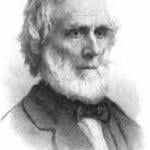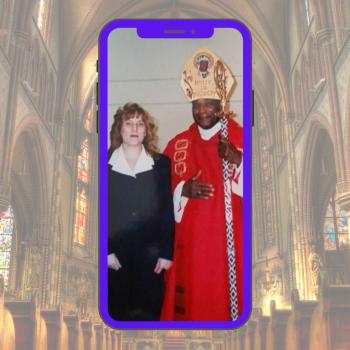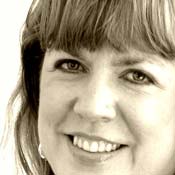Time is the measure of things that come to an end, but where time itself ends, eternity begins . . . . In the end, there is no end. The ends of time are near the roots of eternity, and the ends of the Earth touch on the other world or the world behind the world.
--Michael Meade
As I was driving to my yoga class this morning, a race was blocking all of the cross streets I usually travel. I finally found my way around it, but at that point I was close to being late and so started to feel a bit agitated with stoplights and slow drivers in front of me. I could hear the voices start in my mind: "Hurry up, if you don't get there early . . ."
"What?" I interrupted myself. "I won't get my favorite spot in the room? They'll lock the door when class begins and I won't get in?" While those both may be true, the irony of my rushing impatiently to yoga class sank in, and I took a deep breath and let the spaciousness of the moment fill me. Worrying wasn't going to get me to class any faster, and I would be more likely to get into an accident.
I would like to say that this kind of scene plays itself out very rarely in my life, but I would be trying to convince you that I am not susceptible to being very human. The same thing happens when I have too many deadlines and I feel the pressure of too many things to do in too little time. And while I find myself caught in the inner dialogue about time often, I have become more adept at catching myself in these moments.
How many of us wish there were more hours in the day to get things done? As if twenty-six hour days would somehow solve our problems with feeling so rushed and busy all the time. We think that by hurrying we will somehow catch up, but that is the great illusion.
We are all suffering from time poverty in a culture that worships productivity and accomplishments. We become hostage to our calendars. In his book Time Wars, Jeremy Rifkin says, "We have surrounded ourselves with time-saving technological gadgetry, only to be overwhelmed by plans that cannot be carried out, appointments that cannot be honored, schedules that cannot be fulfilled, and deadlines that cannot be met." What is the purpose of managing our days more efficiently if we don't understand the meaning of our days?
Last Christmas, I had an experience of confronting my own mortality in a very intimate way. It was profound for me to walk away alive but knowing it could so very easily have been otherwise. I was humbled. And profoundly grateful. As with many others who have had near-death experiences, the days since have indeed cultivated in me an even deeper cherishing of my moments. And yet the irony is that while I am keenly aware of the preciousness of my days and even my hours, overall I don't generally feel more rushed in my life or more compelled to get things done faster. Instead, I inhabit my days more fully so that each one feels more like a wide expanse and an open field of possibility rather than a narrow tunnel nearing its end.
Despite all of our time-saving tools and gadgets, the truth is we need less and less conscious attention to complete the tasks of our day. If anything, we are tempted to multi-task to get as much done as possible at one time so we are never truly present to anything we are doing. Jacob Needleman, in his book Time and the Soul, writes that most of us are like what the Tibetans call "hungry ghosts"—not really existing, not present to life, obsessed with hurrying and doing things right away: "But right away is the opposite of now-the opposite of the lived present moment in which the passing of time no longer tyrannizes us. " He goes on to say that the "hungry ghosts" continue to starve by hungering only after a false illusion of more hours and more days, when what we really hunger for is the present moment. I recognize that I could live a thousand years, but if I am not present to it I will still feel the dissatisfaction and absence of meaning to the end of my days.
When we feel trapped by "no time," we have lost touch with the eternal. The larger culture reinforces this by perpetuating a story that we are nearing the End of Time. Apocalyptic predictions are a part of this larger narrative. We feel victimized by our lengthy "to do" lists and day planners. Clearly, we are living in a period of chaos and decay. When we view time from a linear perspective, we feel as though we are hurtling toward our own untimely ends.
Organic time, on the other hand, is cyclical and sees periods of destruction as making the way for new growth and possibility. Autumn and winter always lead to springtime. When religious traditions write about life after death being eternal, they don't mean that we will live as we do now, only with an endless numbers of days. Instead, we will be immersed in the Now. The purpose of most spiritual practices is to simply arrive right Here, right Now. And for many of us, it will be the longest journey we ever take.





